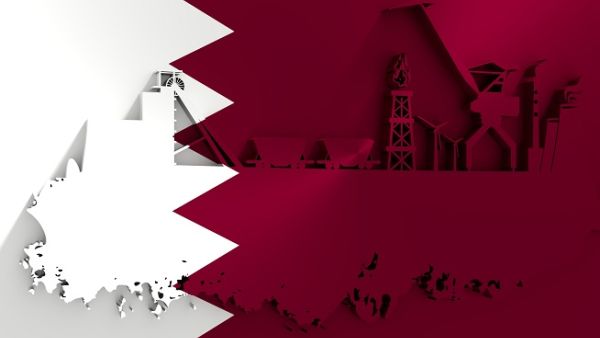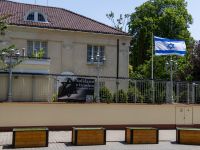Qatar is preparing to speed up the growth of its natural gas sector by 30 percent, Minister of Energy and Industry HE Mohammed bin Saleh al Sada has said.
Addressing a session of the Qatar-Germany Business and Investment Forum (QGBIF) held in Berlin on Saturday, he said this would present an opportunity for investors in Germany to make their foray into Qatar or expand their existing ventures there.
The minister said the expansion of the gas sector, which is linked to the Qatar National Vision 2030 and the economic diversification efforts, will open up many areas of investments in the country.
"We invest in gas reserves to diversify our sources of income, which is in line with the objectives of the Qatar National Vision 2030," Sada said.
Qatari industry is one of such sources, he said, adding that industrial expansion would open up investment-stimulating areas. The minister stressed that diversifying sources of income is not an objective as much as it is a way for Qatar to strengthen the economy.
The minister said the growth in the gas sector is based on a vision that recognises gas as a strategic resource that has an ever-increasing demand.
Read More
Qatar Becomes First GCC Country to Offer Expats Permanent Visas
Report: Qatar's Economy to Grow 3 Percent Despite Economic Blockade
The world is expected to achieve 10 percent growth this year, he said.
The Gulf crisis, precipitated by the unjust siege imposed on Qatar by some of its neighbours last year, is a blessing that has been exploited well and handled wisely, Sada said.
"Now, after a year has passed since the crisis, we have implemented our plans extensively to expand our businesses. There is a turnout of more than 500 percent, which is a good number, and I emphasize here that knowledge-based investment is what we should focus on along with meeting market demands."
Qatar Petroleum President and Chief Executive Saad Sherida al Kaabi, who also spoke at the session, said Qatar and Germany already have partnerships in the gas sector.
"We rely a lot on German technology in the petrochemical sector and in various energy facilities that require advanced technology," he said, adding there are still many opportunities in that direction.
There are opportunities for SMEs as well, Kaabi said."We need more companies that provide services in the oil and gas sectors, both in logistics and supply. There are many good companies that can establish a partnership in Qatar to serve the petrochemical sector, or other areas."
For German companies outside Qatar, Kaabi said there is a world of opportunities in Qatar's foreign projects such as the gas receiving station in Germany.
"At the global level, we are developing our partnership continuously and we have investments in Cyprus, Mexico, Brazil, Argentina and the United States. In Europe, we have a receiving station in Italy and the UK and we supply almost all of Europe with liquefied gas," he said.
He pointed out that Qatar is entering into joint ventures with India, Pakistan and other countries in the region, as well as Germany, where it will supply these markets with liquefied natural gas.
Gas, he said, is considered the cleanest fossil energy and the gas markets are growing continuously, especially in the field of power generation.
The session also had addresses from Minister of Municipality and Environment HE Mohammed bin Abdullah al Rumaihi and Qatar Petroleum President and Chairman of the Free Zones Authority Ahmed Mohammed al Sayed.
Rumaihi said all fields in Qatar are brimming with activities. This is especially true in the case of food sector as Qatar strives to achieve self-sufficiency in producing enough food for the three million people living in Qatar, he added.
The minister said Qatar not only aims to achieve food security, but also plans to create a surplus in food production so as to enable export of its food products.
"There are 42 strategic products that constitute a priority, and this creates investment opportunities for German companies," he said.
Rumaihi said the private sector has been able to raise the quantity of production since June last year and it will continue to do so until it has achieved sufficient production.
Highlighting how the agricultural sector can benefit from the German experience, Rumaihi said,"Germany is an advanced country in the field of agriculture and livestock. As the State of Qatar is about to invest and expand in this field, there is a great opportunity to benefit from German expertise, agricultural equipment, irrigation equipment and water management, and these areas need training and development."
Qatar Petroleum Chief Executive Saad Sherida Al Kaabi said,"We need new technologies and Germany is a leader in the construction industry, and we aim to enhance this aspect and raise efficiency in line with QNV 2030."
With regard to the development witnessed by the State of Qatar in the production of gas and opportunities for German companies to establish partnerships that contribute to this development, he said the Free Zones Authority Chairman Ahmed Mohammed al Sayed said Qatar has reached a stage where it has to invest all the wealth and assets it has acquired, as well as the country's advanced educational platform, to move towards a knowledge-based economy.
"We have gone through various stages. We developed the oil and gas industry, launched Qatar National Vision 2030, and developed infrastructure, and we are going to organize the 2022 World Cup, as we continue to diversify our sources of income."








